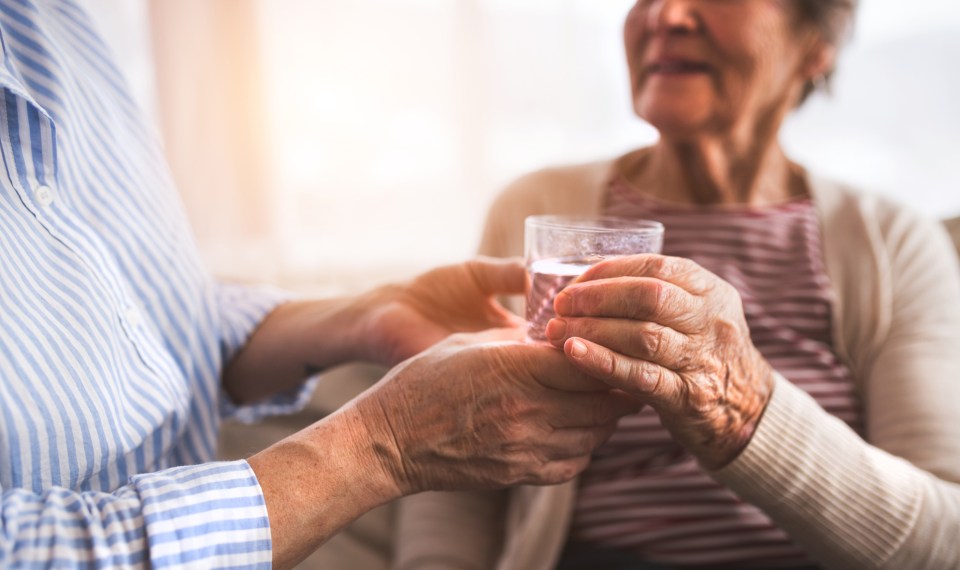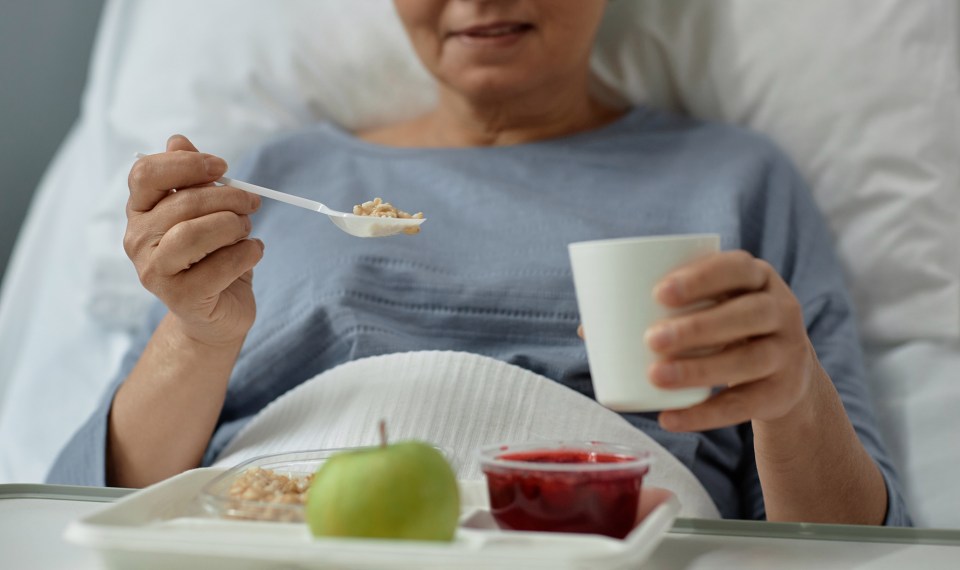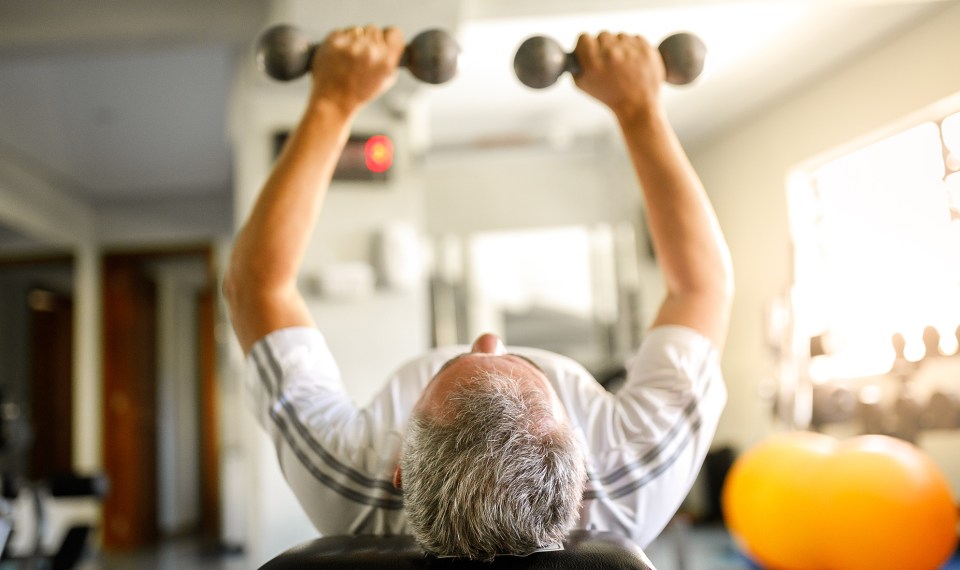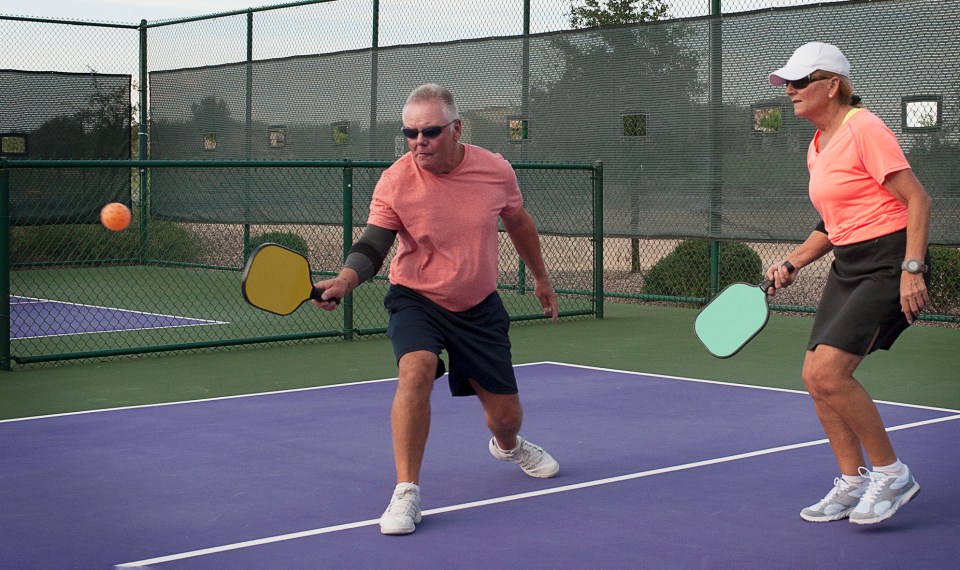Staying properly hydrated is important at every age, but it’s even more so as you get older.
Nearly every function of the human body is dependent on water from regulating your body temperature to lubricating your joints. Not drinking enough water can lead to dehydration, a serious health condition, especially for those 65 and older. According to a UCLA study, an estimated 40% of adults 65 and over are chronically under hydrated.
Jane Maslonik, a registered dietitian at Encompass Health Rehabilitation Hospital of Altoona in Pennsylvania, said there are a variety of reasons that put older adults at an increased risk of becoming dehydrated.
“Hydration is important for all of us,” she said. “In the elderly, a lot of things happen that increase their risk for dehydration.”
What is Dehydration?
Dehydration occurs when your body does not have enough fluids. This could be caused by excessive sweating or urinating, as well as not taking in enough fluids. It is a medical emergency and a common cause of hospitalization among older adults.
Symptoms, depending on the severity of the condition, could include:
- Thirst
- Headache
- Cramping
- Not urinating or dark-colored urine
- Sunken eyes
- Rapid breathing or heart rate
- Fainting
Maslonik said by the time you are feeling thirsty, you are already showing the first signs of mild dehydration. The problem for older adults, she said—the feeling of thirst diminishes as you age.
Dehydration Risk Factors for Older Adults
When you get older, your sense of taste changes, and so does your sense of thirst. “Many elderly people don’t have that sensation; it decreases as you get older,” Maslonik said.
It’s one of several reasons older adults are more prone to dehydration.
As you age, your body also gradually loses muscle mass, which is what holds fluids in the body, she explained. That means older adults store less water in their bodies than young adults and children. “That’s why it’s much easier for them to dehydrate than those who are younger,” she said.
Other factors that increase the risk of dehydration for older adults include:
- Medications. Certain medications can cause them to fluid loss. Diuretics, also known as water pills, are used to treat high blood pressure, and rid your body of fluids. Laxatives have a similar effect.
- Limited mobility. Those less mobile, Maslonik said, tend to limit their intake of fluids to avoid having to get up to use the bathroom and risk falling, as well.
- Diabetes and kidney disease. According to the American Diabetes Association, nearly 30% of those 65 and older have diabetes. Frequent urination is one symptom of the condition, especially if diabetes is not managed properly or is left untreated. If the kidneys are not functioning properly, this could lead to a fluid imbalance and an increased risk of dehydration.
- Swallowing difficulties. Many older adults have swallowing disorders, also known as dysphagia. This can make eating and drinking challenging and could require medical care to avoid dehydration and starvation.
How Much Water Should You Drink as You Get Older?
Maslonik said six to eight glasses a day is still the standard. However, that could change depending on your height and body size. “The larger your body weight the more fluids you need,” she said. “It’s not just about drinking more water; older adults as well as their caregivers and family members may need to come up with some creative ways to add fluid into their diet.”
You can drink too much water, which presents other health consequences. Known as hyponatremia, Maslonik said the condition is extremely rare.
Tips to Help You Stay Hydrated
Because drinking water may not be at the top of your to-do list, Maslonik said there are tools to help you remember. And, if water is not your beverage of choice, she said there are other options that can help you stay hydrated throughout the day.
She offers the following tips:
- Purchase a hydration tracking water bottle. There are a variety of water bottles that can track your water intake. Fill it up at the beginning of each day, and keep it close by to ensure you are getting enough fluids.
- Download a hydration tracking app. There are a variety of smart phone apps that can help you keep track of your water intake and offer gentle reminders on your phone, smartwatch or fitness tracker when it’s time to take a water break.
- Switch it up. Maybe water is not your favorite, or you just want something different. Sparkling water is just as effective at keeping you hydrated as still water. Fruit juices also offer hydration, just be aware of sugar intake. Maslonik also warned that caffeinated drinks such as coffee and sodas are diuretics, and can wreck your efforts to stay hydrated, as can alcohol.
- Eat your liquids. Most fruits and vegetables are packed with water. If your diet allows, snack on a few grapes or slice up an apple. You won’t get as much fluid as you would from a glass of water, but it can still help keep you hydrated, Maslonik said.
The content of this site is for informational purposes only and should not be taken as professional medical advice. Always seek the advice of your physician or other qualified healthcare provider with any questions you may have regarding any medical conditions or treatments.



